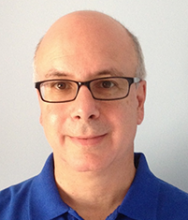Organizations are just beginning to scratch the surface of what's possible with DevOps methodologies. As a result, those that have been leveraging lean principles since before the concept of DevOps even existed have witnessed firsthand the rapid evolution of the movement - and have had to continuously adapt and improve their practices to keep up.
Carmen DeArdo, DevOps technology leader for Nationwide Insurance, is one of those early pioneers and a speaker at the upcoming DevOps Enterprise Summit (see below for a discount code especially for Enterprisers Project readers). We spoke with DeArdo about some of his key learnings along Nationwide's DevOps transformation journey.
The Enterprisers Project (TEP): Can you give us some background on the lean application development initiative at Nationwide Insurance?

DeArdo: About 7 years ago, we started an agile initiative focused around our development processes (design, develop, test). This resulted in forming agile teams across the enterprise (over 200 now), which comprises the majority of our development work. While we got a lot of results from this initiative such as improved quality, productivity, and on-time delivery, we also realized that in order to make further improvements, we needed to look at the entire delivery value stream. Our analysis indicated that we had front-end wait states from a lack of continuous flow of work into our agile teams, wait states due to dependencies on resources (e.g. development/test environments), and also delays in deployment due to manual activities and high ceremony processes.
At this point, we had also implemented a lot of lean concepts into our environment (my leader, Tom Paider, has written a lean IT handbook with Mike Orzen).
So by applying these lean principles to our entire delivery value stream, we are looking to drive a series of continuous improvements that will result in faster and more efficient delivery to our customers. A key component of this is our continuous delivery Initiative, which is something that was already in progress. That is what I will be talking in more detail about at the conference.
TEP: You were a speaker at the inaugural DevOps Enterprise Summit last year. How has your DevOps strategy evolved over the past year?
DeArdo: What we have done in the last year is formulate our DevOps model, which consists of practices and cultural pillars, built upon a foundation of agile and lean principles. We then assessed where we were in these areas. In some, such as continuous integration, we are very mature. In others, such as continuous delivery (CD) and automated infrastructure, we have work to do. So while in the past, we might have had different areas focusing separately on driving local optimizations, we are now establishing a program and roadmap where we can prioritize and manage our DevOps related work in progress.
TEP: How have your key learnings around DevOps shaped your future goals?
DeArdo: While some of the improvements we have identified can be addressed thorough better process and technology integration (e.g. CD pipeline), others require more extensive end-to-end process redesign. While a lot of focus in DevOps tends to be on the automation capabilities for testing and infrastructure, we have spent considerable time looking at the front end of our process and how work flows into our CD pipeline. We spend a majority of time (and money) on initiatives prior to a story card ever entering an agile team backlog. There is also a lot of variance in our front-end processes, which results in waste. And our delivery process was not integrated to allow continuous visibility of the work as it moved from planning to deployment.
So a key learning is that while technology is great, if you don’t have an efficient end-to-end process that provides continuous visibility of the work as it progresses and also reduces variance, technology will only provide limited value to improving speed and efficiency of what you deliver to your customers.
TEP: Knowing what you know now, if you had to begin your DevOps journey over again, what might you have done differently?
DeArdo: That’s a good question. When we started, it wasn’t even a DevOps journey per se because DevOps as a concept really didn’t really exist 10 years ago. I do think the work we did with forming agile teams is a great way to start. Obviously starting out with a view of the entire delivery value chain and then driving more holistic improvements would avoid some of the pitfalls of local optimizations, which can actually add to your “process debt” and variance. This will also be part of my talk relating our experience and how other enterprises can learn from where companies like us have been in planning their own journey.
The DevOps Enterprise Summit takes place Oct. 19-21 in San Francisco, CA. Friends of The Enterprisers Project can use promo code “ENTERPRISER20” for a 20 percent discount on registration.
Carmen DeArdo, technology director at Nationwide Insurance, is responsible for driving continuous delivery utilizing DevOps, lean and agile techniques across mobile, distributed and mainframe and other technologies. This includes recommendations and implementation of technologies integrated across the development life cycle to drive variable speed IT.



